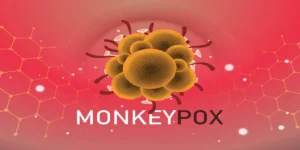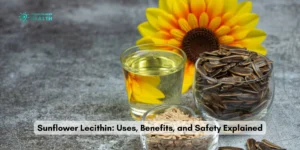Polycystic Ovary Syndrome (PCOS) and Intersex are two complex medical conditions that can significantly impact an individual’s physical and emotional well-being. Understanding these conditions, their symptoms, causes, and the challenges faced by those affected is crucial for providing appropriate support and care.
Introduction
Polycystic Ovary Syndrome and Intersex are often misunderstood and stigmatized conditions, leading to misconceptions and inadequate support for those affected. In this article, we delve into the intricacies of PCOS and Intersex, shedding light on their symptoms, causes, treatment options, and the importance of advocacy and awareness.
What is PCOS and Intersex?
Definition of PCOS
Polycystic Ovary Syndrome, commonly known as PCOS, is a hormonal disorder that affects people with ovaries. It is characterized by irregular menstrual cycles, excess androgen levels, and small fluid-filled sacs (cysts) in the ovaries.
Definition of Intersex
Intersex is a term used to describe variations in sex characteristics that do not fit typical binary notions of male or female bodies. Intersex variations may involve differences in chromosomes, gonads, or genitalia.
Symptoms, Causes, and Diagnosis
Symptoms of PCOS
Polycystic Ovary Syndrome symptoms may include irregular periods, excessive hair growth (hirsutism), acne, and weight gain. Infertility and metabolic complications such as insulin resistance and type 2 diabetes are also common.
Causes of PCOS
The exact cause of Polycystic Ovary Syndrome is not fully understood, but factors such as genetics, insulin resistance, and hormonal imbalances are believed to play a role in its development.
Diagnosis of Polycystic Ovary Syndrome
Diagnosing PCOS typically involves a combination of medical history evaluation, physical examination, laboratory tests to assess hormone levels, and imaging studies to examine the ovaries.
Intersex: Myths and Facts
Common myths about Intersex
Misconceptions about Intersex individuals often lead to stigma and discrimination. Common myths include the belief that Intersex variations are rare or abnormal.
Facts about Intersex
Intersex variations are more common than many people realize, occurring in approximately 1.7% of the population. Intersex is a natural and diverse aspect of human biology, and individuals with Intersex variations lead healthy and fulfilling lives.
The Link Between PCOS and Intersex
The relationship between Polycystic Ovary Syndrome and Intersex is complex and not fully understood. While they are distinct conditions, there may be overlapping features and shared underlying factors contributing to their development.
How PCOS Affects Intersex Individuals
Intersex individuals with Polycystic Ovary Syndrome may face unique challenges due to the interaction of hormonal imbalances and intersex variations. Managing symptoms and accessing appropriate healthcare can be particularly challenging in this population.
The Impact of Intersex on PCOS Treatment Options
Intersex variations may influence treatment decisions for PCOS, as hormonal interventions and surgical procedures may interact with existing intersex characteristics. Individualized care plans are essential to address the specific needs of each patient.
PCOS and Intersex: Medications and Lifestyle Changes
Treatment for PCOS and Intersex aims to alleviate symptoms and improve overall health and well-being. Medications such as oral contraceptives, insulin-sensitizing agents, and anti-androgens may be prescribed, along with lifestyle modifications such as diet and exercise.
Support and Resources for People with PCOS and Intersex Conditions
Support networks and resources play a crucial role in empowering individuals with PCOS and Intersex. Online communities, advocacy organizations, and healthcare providers can provide valuable support, information, and guidance.
Breaking the Stigma: Advocating for PCOS and Intersex Awareness
Raising awareness and challenging stereotypes are essential steps in reducing the stigma surrounding PCOS and Intersex. Education and advocacy efforts can promote greater understanding and acceptance within society.
Research Updates on PCOS and Intersex
Ongoing research into PCOS and Intersex continues to advance our understanding of these conditions. Recent studies focus on genetic factors, hormonal mechanisms, and novel treatment approaches to improve outcomes for affected individuals.
Understanding the Intersection of Gender Identity and Sexual Development in People with PCOS and Intersex
The intersection of gender identity and sexual development adds another layer of complexity for individuals with PCOS and Intersex. Healthcare providers must approach care with sensitivity and respect for diverse identities and experiences.
The Role of Genetics in the Development of PCOS and Intersex
Genetic factors contribute to the development of both Polycystic Ovary Syndrome and Intersex variations. Understanding the genetic basis of these conditions can inform diagnostic strategies and personalized treatment approaches.
Navigating Healthcare Systems as a Person with a Rare Condition Like PCOS or Intersex
Accessing appropriate healthcare can be challenging for individuals with rare conditions such as Polycystic Ovary Syndrome or Intersex. Advocacy for inclusive healthcare policies and provider education is essential to improve access and quality of care.
What Loved Ones Can Do to Support People with PCOS or Intersex Conditions
Family members, friends, and partners play a crucial role in supporting individuals with PCOS or Intersex. Listening with empathy, offering practical assistance, and advocating for their needs can make a significant difference in their well-being.
Conclusion
PCOS and Intersex are complex conditions that require comprehensive understanding and compassionate care. By raising awareness, challenging stigma, and advocating for inclusive healthcare policies, we can create a more supportive and equitable environment for those affected by these conditions.
FAQs
1. What is the prevalence of Polycystic Ovary Syndrome and Intersex?
PCOS affects approximately 1 in 10 women of reproductive age, while Intersex variations occur in about 1.7% of the population.
2. Can PCOS and Intersex be cured?
There is no cure for PCOS or Intersex, but symptoms can be managed with appropriate treatment and support.
3. Are there support groups for individuals with PCOS and Intersex?
Yes, there are numerous online and offline support groups and advocacy organizations dedicated to providing support and resources for individuals with PCOS and Intersex.
4. How does PCOS affect fertility?
PCOS can disrupt ovulation and menstrual cycles, leading to infertility or difficulty conceiving for some individuals.
5. What challenges do individuals with Intersex variations face?
Individuals with Intersex variations may face challenges related to stigma, discrimination, and access to appropriate healthcare and support services.
Disclaimer: The information provided in this article is for educational purposes only and should not be construed as medical advice. Individuals with PCOS or Intersex conditions should consult with healthcare professionals for personalized diagnosis and treatment.





